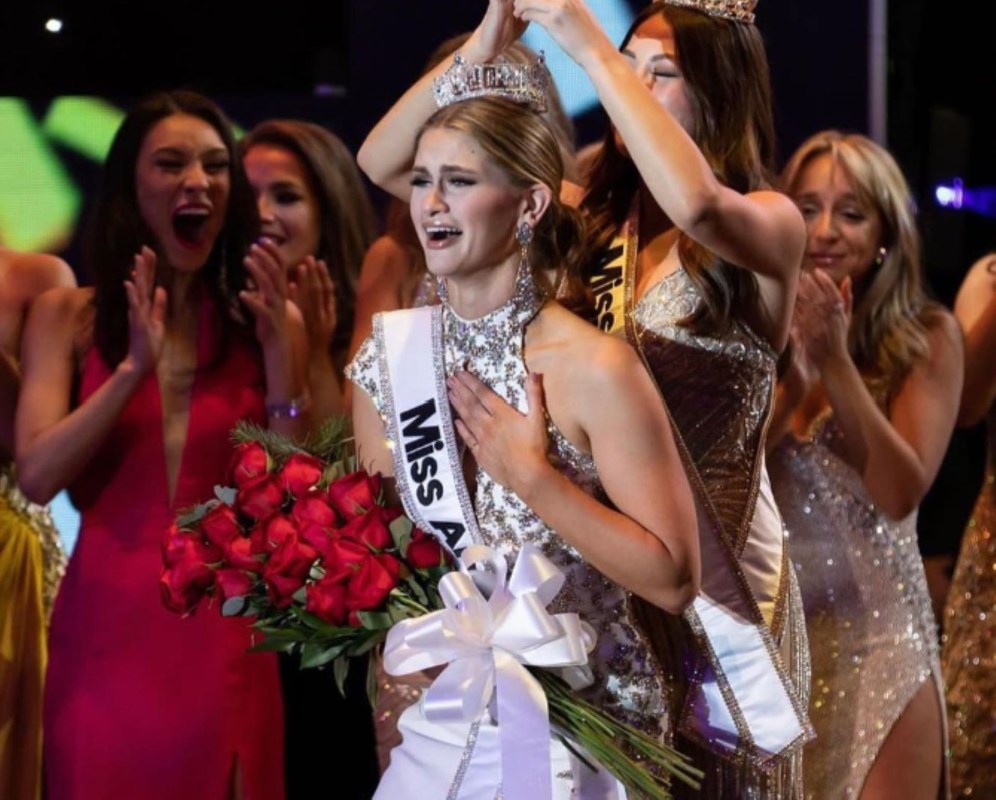Grace Stanke is as multifaceted as a person can be.
"I've been told I read like a Mad Lib," she said during an appearance on Benji Backer's Coming Clean podcast. "I'm Miss America right now, I'm a nuclear engineering student, I'm also a competitive water skier, I'm also a classical violinist, and I love hiking."
Stanke is the 2023 Miss America winner and was crowned in December, according to a Miss America press release. As she revealed on Coming Clean, she's also an outspoken advocate for zero-carbon energy: electricity that can be generated without releasing heat-trapping gases into our atmosphere.
Her interest in energy began at age 16, when the Wausau, Wisconsin native says she had finished touring the universities she was interested in attending. Stanke was torn between studying either aerospace or nuclear engineering in college.
"When I was talking with my dad, who was a civil engineer his whole life … he goes, 'Don't go into nuclear … there's no career there. They're all shutting down. Don't do it,'" she recalled. "So I'm a 16-year-old teenage girl; what do you think I do? I flip my hair and I go, 'Watch me!'"
Since then, Stanke has excelled in her studies and is in the last year of her undergraduate degree, with plans to enter graduate school using the $68,000 scholarship she won in the Miss America competition.
At the same time, she's using her title to promote zero-carbon energy.
"I can utilize this opportunity, this one year I have, to go on and not necessarily change the entire world, but to have the one conversation with the one person and change their world," she explained.
To do that, Stanke starts by pointing out that the widely accepted image of nuclear power is wrong.
"For so long, the nuclear industry has been portrayed as some high, complex science when it's really not," she said on the podcast.
She lists radioactive items that Americans use every day without knowing it, from smoke detectors to medical equipment to the naturally-occurring radioactive particles in bananas.
"It's just all around us," she said. "That's just how it is."
She also addressed the most common objections to nuclear power: safety, cost, and what happens to nuclear waste at the end of its lifespan.
When it comes to safety, Stanke points out that nuclear energy actually has a better track record than oil and other highly polluting energy sources.
"Let's talk about just the past 15 years in America alone. Let's talk about just the Deepwater Horizon oil spill," she said. "That's an insane thing that I would say is significantly worse than Chernobyl."
Stanke acknowledges that nuclear power plants have a high up-front cost. "I think that is one of the weaknesses of the industry," she said. "But at the same time, looking at the power plants that were built 40 years ago … they last forever."
"I look at a lot of these fossil fuel plants and the amount of shut-downs … once they're shut down, they're just left there," she continued, adding that the price of nuclear power is stable and that it's often lower than competing power sources.
As for nuclear waste, Stanke sees it as more of a policy problem than an environmental one.
"We have plenty of options to recycle that nuclear waste, to pull it apart, use it in the medical field for certain things," she said. "But because of how policy is set up, once it's taken out of a power plant, that's it, it's done. When nuclear waste is removed from that power plant, it's still got about 90 to 95% of its usability left in it, and that's something that we can capitalize on if we actually allow it to be used for good."
"Who we vote into office controls those policy decisions," she added.
For those who want to do more beyond the voting booth, her best advice is, "Be annoying. Call your senators, call your people … Start that conversation."
Join our free newsletter for cool news and actionable info that makes it easy to help yourself while helping the planet.









